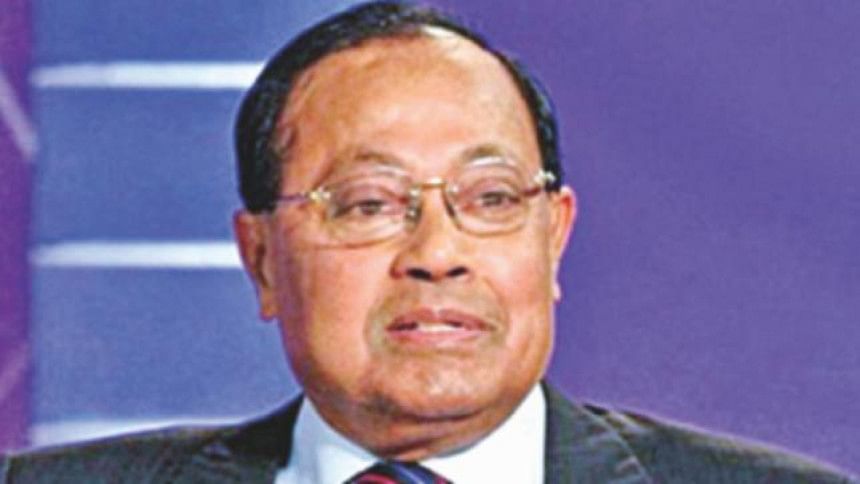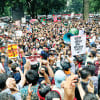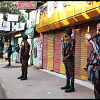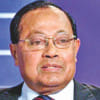Non-partisan person at the helm

The BNP has outlined a draft framework for the next polls-time government with a proposal for having a non-partisan administration on the basis of consensus among political parties upon dissolution of parliament.
According to the draft, the president in consultation with all political parties would appoint a prime minister or chief adviser to lead the government with 10 advisers. The advisers would be appointed by the president on the PM's advice.
The PM or chief adviser and the advisers would be non-partisan, and none of them would be eligible to contest the upcoming polls, it pointed out.
The polls-time government would carry out only routine work, and would not make any policy decision, it added.
The BNP has already sent the draft to eminent jurist and Jatiya Oikya Prokriya Convener Dr Kamal Hossain to get his opinion on it.
“We have devised a formula but it needs consent from other political parties ... We will try to make it public by this month,” BNP Standing Committee Member Moudud Ahmed told this newspaper yesterday.
Several other BNP leaders said they would unveil the formula after consultation with Dr Kamal, Juktofront President Prof AQM Badruddoza Chowdhury and other representatives of the parties involved in the ongoing unity process.
Contacted, Dr Kamal said, “I received a copy of the draft proposal. I am yet to see it ... An election-time government can be formed in consultation with all political parties.”
In 2011, a political crisis surfaced following the cancellation of the non-partisan polls-time caretaker government system through a constitutional amendment during the AL-led government's tenure. The amendment allowed the AL to stay in power during the 2014 parliamentary election.
The BNP-led alliance opposed the cancellation of the caretaker system and demanded its restoration.
But the AL didn't restore the system, and the national election was held on January 5, 2014, amid boycott by the BNP-led alliance. The AL secured an easy win.
Since then, the BNP has been saying it would come up with a polls-time government formula for holding a free and fair election. The party is now looking to forge a greater national unity with other political parties ahead of the national polls slated for December.
BNP's draft proposal said, “The president will appoint the person, chosen on the basis of consensus, as prime minister or chief adviser for an interim period. The newly appointed prime minister will not form a cabinet, instead he or she will perform routine work during the election time through the advisers. The advisers will be nominated on the basis of consensus of all political parties.”
It also said the advisers will not need to take oath as they won't hold the posts of ministers.
According to the draft, the president would dissolve parliament upon the PM's advice. The PM would then resign and the council of ministers would stand dissolved.
The president in consultation with the registered political parties would appoint an eminent and neutral person as PM or chief adviser. The polls-time neutral government would hold the elections within 90 days after parliament's dissolution.
The election-time government would step down once the newly elected PM assumes office with a new parliament in place, it added.
There is little chance that the ruling AL will accept the proposal as leaders of the party have all along said the upcoming elections will be held in line with the constitution, meaning the PM will stay in office during the elections.

 For all latest news, follow The Daily Star's Google News channel.
For all latest news, follow The Daily Star's Google News channel. 







Comments